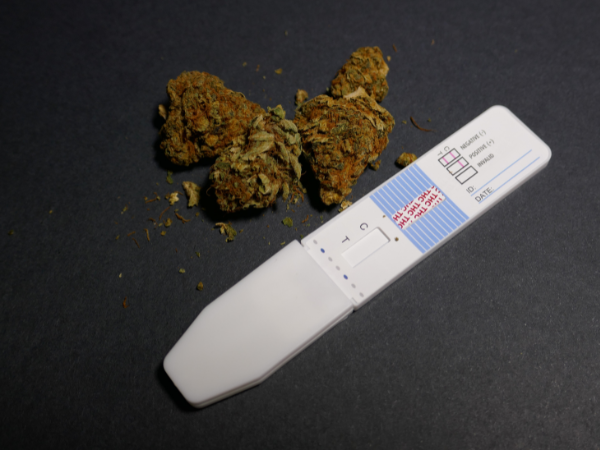Here at Drugs Testing Kits UK, we are frequently approached by companies, organisations, and others, with questions related to compiling a Drug & Alcohol policy. This blog gives you clear, concise information on the key points that you should consider.
The Main Points to Incorporate into Your Policy
Rules on Alcohol Consumption
In the first instance, it is important to be mindful that any rules that you add, are reflective of the culture that you want to establish. To that end, consider and clarify your stance on the following points:
- Is the consumption of alcohol totally prohibited in work? If the answer is yes, then what happens during work breaks; in the context of parties and celebrations, such as a retirement, or Christmas; at out-of hours networking events; or when entertaining clients?
- Are there any safety grounds that necessitate your company imposing rules with regard to drinking outside work (e.g. prohibiting drivers to drink for a specified period prior to beginning a shift)?
- Think about how the aforementioned points link together with other existing policies. For example: if a member of staff wants to tell the company/organisation about an issue, who should they approach - is there a line manager, or an appointed person in HR? Will there be a record of the meeting, that will be kept on the employee's file, and will the information contained therein, be totally confidential? Your company/organisation must explain the procedure for a member of staff reporting a concern about a colleague; and disclosing their own issue. Will you employ the same procedure? - It is very important to encourage members of staff to ask for help, so to that end, you must provide this information [1].
“It is good practice to outline any employee assistance programs or other sources of support that are on offer, & how employees can access these. Consider clarifying whether use of these support programmes is anonymous. You may also want to list other sources of support that employees could approach (for example, GPs, specialist charities)” [1]
Rules On Employees Having Time Off to Get Support
It is a good idea to state that as a company/organisation: decisions on allowing employees to take time off for drug and alcohol support, are made on a case-by-case basis. Therefore, to that end, when it comes to working hours, the company/organisation, can be flexible. For instance, if an employee has to attend regular meetings with Alcoholics Anonymous (AA), or another support service; or visit a drug counsellor or other healthcare professional during working hours; then (subject to written confirmation about the appointment/s), you can decide whether or not they can take the time off. Of note, it is preferable to maintain this flexibility, so that the employee can be monitored to ensure that they are not taking dubious sick days off; and are performing well at work. - As if things are not as they should be, your company may need to take other action [1].
Rules on Taking Action
“If you are aware that an employee may be taking drugs ‘socially’ (e.g. taking an occasional ecstasy tablet at the weekend), but there is no evidence that it is impacting their work, what is your response? How would you deal with ‘gossip’ in your company/organisation in such a situation? What if the individual ‘boasts’ about taking drugs outside work? At what point does an employee’s behaviour outside work become your issue? What if there are pictures posted on social media that could bring the organisation into disrepute?” [1].
You need to spend time considering these different aspects, and then arrive at a clear concise policy, which will state the point at which you would start to take action [1].
Drug & Alcohol Testing
It is crucial to outline your approach to drug and alcohol testing. For example, you can stipulate that your company/organisation will conduct both periodic and random drug and alcohol tests. Along with where they will be conducted. For example, on-site in the workplace, or in other locations. All the devices provided by Drug Testing Kits UK, empower you to test your employees with confidence, due to their state-of-the-art, top quality, rapid, reliable results. Moreover, they are
the easiest drug testing solutions for employers and organisations; and they do not have to be administered by a medic, which is excellent news, as it is extremely costly to hire a medically qualified person for a day, via an agency. Drug Testing Kits UK's testing devices are so simple to use, that you can appoint a dedicated person from HR, or other member of staff, to administer them. - A process which is super quick, meaning that there is minimal disruption to the working day.
Consequences of Breaching Policy Rules
It is important to state the consequences (including the possibility of dismissal), that employees could face, should they breach any of the rules outlined in your policy. Moreover, you have to explain at what stage your company/organisation moves from supporting a member of staff who is dealing with a drug or alcohol problem, to a more disciplinary/punitory approach [1].
Issues Related to Legal Drugs
Consider whether your approach would be different, if a problem occurs with one of your employees who is taking legal drugs, such as prescription painkillers. Furthermore, there could be various related issues; for example, the misuse of drugs and financial woes, or mental health difficulties. You should also contemplate the way in which your company/organisation would handle these types of problems, if there was no drug issue [1].
Employment Type
“ The policy should apply to alcohol & illegal drugs, & consideration should also include prescription & over-the-counter medications that may affect performance” [1]
Consider whether your will respond in the same way, if the employee who has an issue, is on a zero-hours contract; or is a freelancer or contractor. If you do not follow the same route, what approach will you take? What is the rationale for the changes? [1].
Policy Implementation
Here at Drug Testing Kits UK, we work to keep you up to speed with policy implementation. The CIPD (the UK's professional body for HR and people development), advise that you make sure that your Drug & Alcohol policy is set out in accordance with other organisational policies on the following aspects:
- Managing absenteeism and sickness
- Well-being
- Health and safety
- Attendance and timekeeping
- Management and performance
- Disciplinary action [1].
Consultation
The CIPD states that:
“You will need to consider how to communicate your policy to staff. You may have a standard approach for this; however, possibilities to consider might include: writing to all staff enclosing a hard copy of the policy, uploading it to an intranet, promoting it in an employee newsletter/magazine or emailing staff to draw their attention to it. You could also consider workshops, team briefings, seminars for staff drawing their attention to the policy, highlighting any new requirements & ensuring they understand it” [1]
You must also contemplate whether or not your company/organisation requires an acknowledgement or proof of acceptance of the policy from employees. - Although obtaining this proof is clearly the best route. The latter could necessitate a physical signature, or simply be an automated procedure (in the event that you are uploading your policy to an intranet site). “You need a realistic and pragmatic approach to this – the less effort required from staff to acknowledge the policy, the more you are likely to get it” [1].
Communicating Your Policy
“Communication will raise the general awareness & interest in the issue & engender an empathetic positive approach to colleagues with drug & alcohol-related problems” [1]
You should focus your communication on three key aspects:
- The reasons why drugs and alcohol must not be taken into the workplace, and the potentially harmful impact on members of staff, customers, and the general public
- The operation and existence of the company’s/organisation's policy
- The support that your company/organisation has available for members of staff, and the beneficial aspects of asking for help, and having access to treatment and professional support [1]'
“While communicating the policy it is advisable to promote the sources of support on offer & how to disclose a drug or alcohol issue to contribute to the creation of a supportive & inclusive culture where employees feel more comfortable to discuss any issues they may be facing” [1]
Reviewing Your Drug & Alcohol Policy
This should be carried out on a regular basis. In addition to this, here at Drugs Testing Kits UK, we also recommend that you regularly go to our website to check our latest blogs, which provide the latest information related to: drugs and alcohol in the workplace, newly released cutting-edge drugs and alcohol testing equipment, clear, concise guidelines on changes in the UK law, and much more.
Reference
[1]. CIPD (2020). “Managing Drug & Alcohol Misuse at Work: A Guide For Employers.”
https://www.cipd.co.uk/Images/drug-alcohol-misuse-work-guide-web_tcm18-83082.pdf



 03333 704 704
03333 704 704




